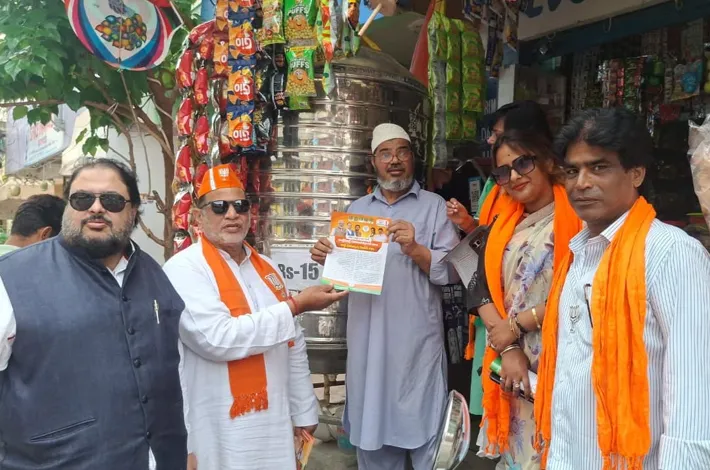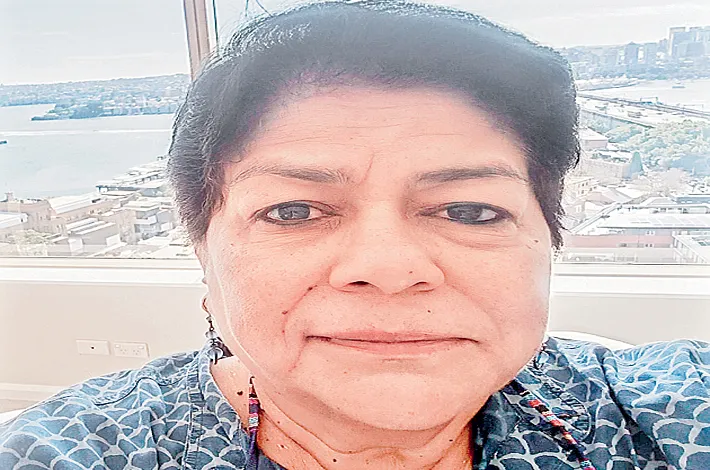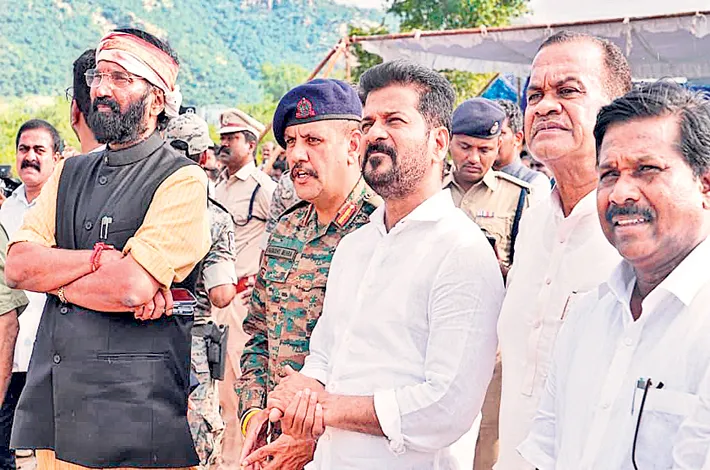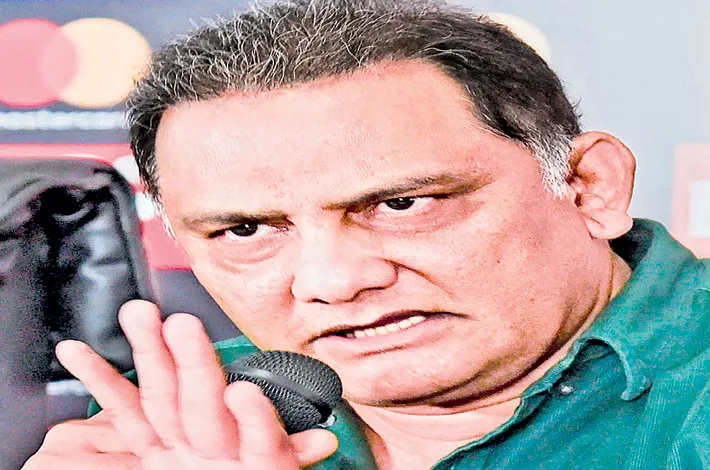The Kakinada Conspiracy
17-07-2025 12:00:00 AM
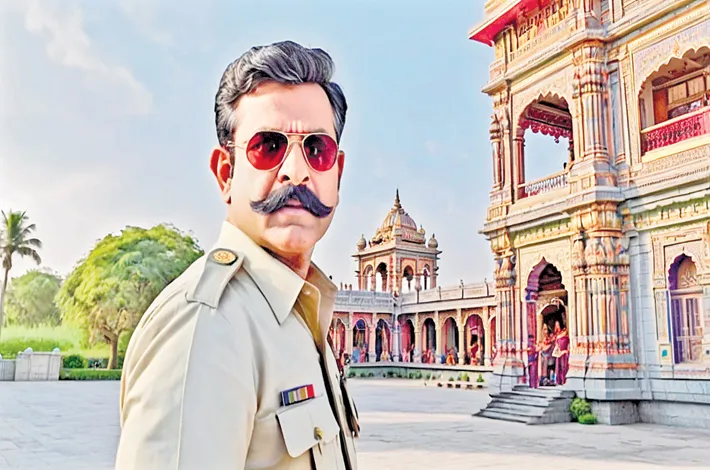
The drive to Rajahmundry along the Godavari River was a study in contrasts—lush paddy fields on one side, the river’s muddy churn on the other. Rajahmundry’s streets were narrower, older, steeped in history. Surya Pratap’s office, perched near the iconic Godavari Bridge, was a modern glass structure that seemed out of place among the town’s colonial-era buildings. Surya, a stocky man with a politician’s smile, greeted Vikram with calculated warmth
The humid air of Kakinada clung to Inspector Vikram Rao like a second skin as he stepped off the train at Kakinada Town Railway Station. The coastal city, nestled in Andhra Pradesh’s East Godavari district, buzzed with its usual chaos—rickshaws honking, fish vendors shouting, and the faint tang of salt and diesel in the air. Vikram, a wiry man in his late thirties with sharp eyes and a perpetually furrowed brow, had been summoned from Hyderabad for a case that had the local police stumped. A prominent businessman, Raghuveer Naidu, had been found dead in his sprawling villa on Beach Road, his throat slit with surgical precision. The murder weapon was missing, and so was any trace of motive.
Vikram’s first stop was the crime scene. The Naidu residence was a fortress of opulence, its white marble façade gleaming under the midday sun. Inside, the air was heavy with the metallic scent of blood. Raghuveer’s body had been removed, but the chalk outline on the teak floor told a grim story. Sub-Inspector Lakshmi, a local officer with a no-nonsense demeanor, briefed him. “No signs of forced entry, sir. The staff saw nothing, heard nothing. But Raghuveer’s safe was open, and a ledger is missing.”
Vikram crouched near the outline, scanning the room. A half-empty glass of toddy sat on a mahogany table, its rim smudged with fingerprints. “Get this to forensics,” he said, pointing to the glass. “And I want a list of everyone who visited this house in the last week.”
As the investigation unfolded, Vikram learned Raghuveer wasn’t the saint his public persona suggested. The businessman had his hands in everything—real estate, shipping, and whispers of smuggling along Kakinada’s bustling port. The missing ledger, Lakshmi speculated, might hold evidence of illicit deals. Vikram’s gut told him the answer lay not in Kakinada but in Rajahmundry, the district’s cultural heart, where Raghuveer’s business rival, Surya Pratap, operated.
The drive to Rajahmundry along the Godavari River was a study in contrasts—lush paddy fields on one side, the river’s muddy churn on the other. Rajahmundry’s streets were narrower, older, steeped in history. Surya Pratap’s office, perched near the iconic Godavari Bridge, was a modern glass structure that seemed out of place among the town’s colonial-era buildings. Surya, a stocky man with a politician’s smile, greeted Vikram with calculated warmth. “Raghuveer’s death? Tragic,” he said, leaning back in his leather chair. “But business is war, Inspector. He had enemies.”
Vikram noticed a flicker in Surya’s eyes when he mentioned the ledger. “Know anything about his accounts?” he pressed. Surya shrugged, but his fingers drummed nervously on the desk. Vikram left the office unconvinced, instructing Lakshmi to tail Surya’s driver, a shifty-eyed man named Kiran.
That night, Kakinada’s port was a maze of shadows and sodium lights. Vikram, acting on a tip from a dockworker, slipped into a warehouse rumored to be a hub for Raghuveer’s smuggling operations. The air reeked of fish and oil.Stuart. Inside, among crates of contraband, he found a locked steel box. Breaking it open, he discovered a stack of documents—not the ledger, but shipping manifests detailing illegal arms shipments. Raghuveer’s name was all over them.
Vikram’s phone buzzed. Lakshmi’s voice was tense. “Kiran’s on the move, sir. Heading toward Rajahmundry.” Vikram raced back, his mind piecing together the puzzle. Kiran, Surya’s driver, had access to both cities, both men. Was he the link?
In Rajahmundry, Vikram and Lakshmi tracked Kiran to a rundown godown near the riverbank. Under the cover of darkness, they watched him meet a hooded figure. Vikram crept closer, heart pounding. The figure turned, revealing a woman—Anjali, Raghuveer’s estranged wife. Kiran handed her a package, and she slipped him an envelope. Before Vikram could move, a gunshot rang out. Kiran dropped, clutching his chest. Anjali vanished into the night.
Vikram gave chase, sprinting along the river’s edge. The Godavari’s current roared beside him, its waters black and endless. Anjali was fast, but Vikram’s determination was relentless. He cornered her near the Havelock Bridge, her face pale under the moonlight. “Why?” he demanded, gun drawn.
Anjali’s laugh was bitter. “Raghuveer was a monster. Smuggling, cheating, ruining lives. I took the ledger to expose him.” She pulled a knife—the murder weapon, Vikram realized. But before she could strike, Lakshmi tackled her from behind.
At the station, Anjali confessed. The ledger, hidden in her home, detailed Raghuveer’s arms deals with Surya. Kiran, her lover, had been her accomplice, but Surya had silenced him to cover his tracks. Vikram arrested Surya at dawn, the ledger sealing his fate.
As the sun rose over Kakinada, Vikram stood by the beach, the case closed but his heart heavy. The Godavari flowed on, carrying secrets to the sea.





